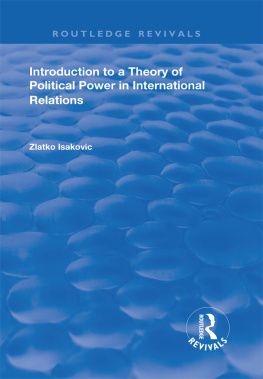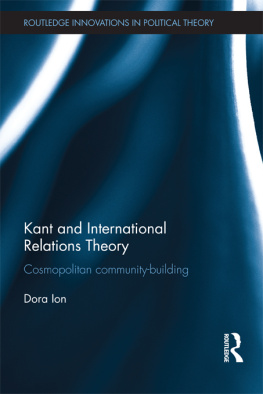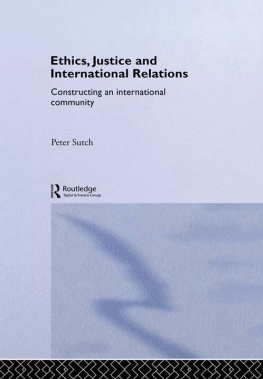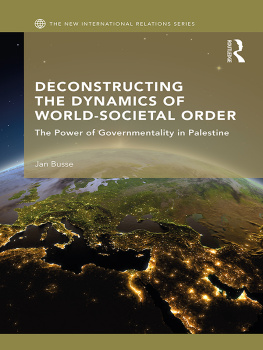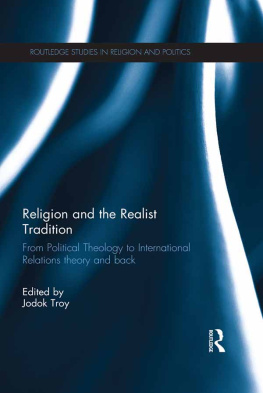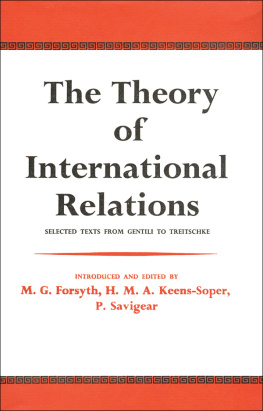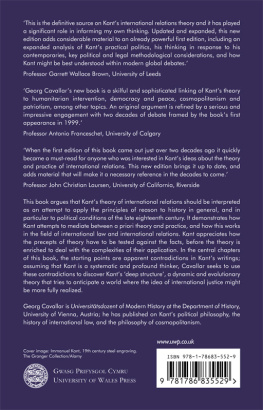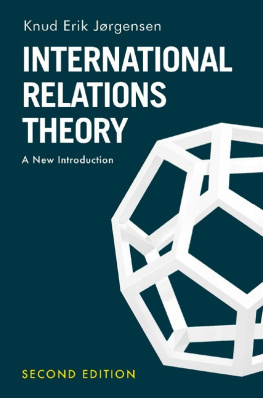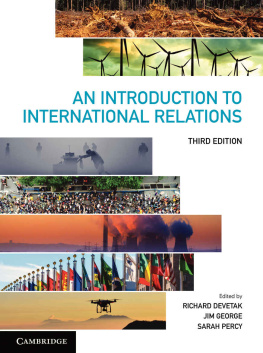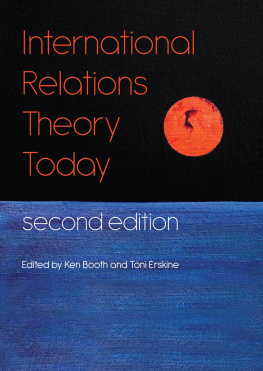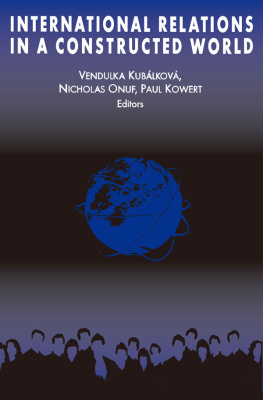First published 2000 by Ashgate Publishing
Reissued 2019 by Routledge
2 Park Square, Milton Park, Abingdon, Oxon, OX14 4RN
52 Vanderbilt Avenue, New York, NY 10017
Routledge is an imprint of the Taylor & Francis Group, an informa business
Copyright Zlatko Isakovic 2000
All rights reserved. No part of this book may be reprinted or reproduced or utilised in any form or by any electronic, mechanical, or other means, now known or hereafter invented, including photocopying and recording, or in any information storage or retrieval system, without permission in writing from the publishers.
Notice:
Product or corporate names may be trademarks or registered trademarks, and are used only for identification and explanation without intent to infringe.
Publisher's Note
The publisher has gone to great lengths to ensure the quality of this reprint but points out that some imperfections in the original copies may be apparent.
Disclaimer
The publisher has made every effort to trace copyright holders and welcomes correspondence from those they have been unable to contact.
A Library of Congress record exists under LC control number:
ISBN 13: 978-1-138-71237-9 (hbk)
ISBN 13: 978-1-315-20022-4 (ebk)
For centuries, power has been a temptation that not even the most eminent thinkers and scientists, such as Aristotle (384-322 BC), Aurelius Augustine (AD 354-430) and Thomas Aquinas (1225-1274), could resist. From Thomas Hobbes (1588-1679) (see 1946) to the English philosopher and humanist Bertrand Russel Hobbes considered state power an instrument of the instinct for self-survival, which in a war between everyone achieves its natural function in mutual war (see 1946: 64, 83); a similar interpretation was expressed by the French theoretician Duverger in one of his works (1972: 17-18).
Historical empirical material often seems to confirm the belief in a strong correlation between power and government, but the presumption that this correlation is historically confined and might be overcome under different historical circumstances may not regarded or qualified merely as a transcendental ideal. Considerable differences may be distinguished between power and government, and there have been instances in history in which the goals that a particular society deemed relevant could not be achieved, in spite of the society's ability to subdue its opponent. One author concludes that power 'is demonstrated and authority consolidated. Expression of power is decisive and short-term, while the expression of authority is gradual and relatively long, if consolidated' (Enciklopedija politicke kulture, 1993: 685).
Although the term 'power' is enriched by political science, sociological, legal, theological, philosophical and other different meanings, a whole range of thinkers apparently share the opinion that the chief attribute of power implies the imposition of will, thus implicitly or explicitly identifying power with force. Schwarzenberger, for example, maintains that power is the ability of an individual, group or state to impose its will on another, relying on the efficiency of the means of force in case of non-submission; by force, Schwarzenberger above all implied physical force (1951: 14). More or less similar definitions were set forth by Dahl (1963: 40), Merton (1968: 426), Mills (1971: 9), Galtung (D. Simic 1993: 65-6) and others.
While power is generally considered an accumulated ability to produce change, force is viewed as a tool used to achieve such goals. Force, therefore, clearly plays an important role as one form of power (particularly where political power is concerned) but the two cannot be equated. Therefore, such an approach can be criticized for considerably restricting the idea of both power and force. The physical form of force ranks high among various kinds of force, but it is not the only one. 'Power as force comprises a series of opportunities to impose will, physical force being only one of them. Will can be imposed without the other side being at all aware it is the victim of violence' (see Stojanovic, 1982: 81, 11-12; Isakovic, 1989a: 18-19).
Since coercion can be extracted from all elements of social power, the term 'force' is considered broader than the term 'physical force' or 'coercion'. Will may be imposed by economic means, propaganda, cultural imperialism and other methods. 'However, force would not be what it is if it did not comprise physical coercion when other means prove inefficient.' Violence is the use of force that can be qualified as illegitimate. In this book, force (coercion or violence) is considered a form of political power, while physical force is viewed as a segment of the complex phenomenon of force.
A third understanding of power, launched by French philosopher Jean Jacques Rousseau (1712-1778), is based on the theory of vertical social stratification (societies' hierarchical division into strata, castes, classes etc.) based on power, reputation and wealth.
The famous German sociologist and philosopher Max Weber (1864 1920) focused on the unequal division of power as a universal phenomenon, considering it the chief source of social stratification (1978). He did not, however, go into a more exhaustive analysis of the very concept of power, its types, or its causes.
According to the theory proposed by Karl Marx (1818-1883) and Friedrich Engels (1820-1895), the economic factor, notably the (non) control of the means of production, ultimately determines a man's status in society and thus models social stratification. It forms the basis of power, which subsequently transforms into economic, political and ideological domination. Criticisms of the theory's mono-causality (sole focus on the economic factor's role in social development) are quite well known. Also, certain relevant elements of the system called socialism or communism apparently did not correspond to the positions and predictions the two authors had elaborated in their works.
There are also numerous forms of horizontal societal stratification divisions into various types of territorial social groups: nations, social groups with economic, regional, traditional, cultural similarities, groups formed on the basis of administrative criteria, or, often, a combination of two or more of the above and other criteria. Social groups boasting their own political organizations are called political territorial groups, while those without them are called social territorial groups. These territorial groups can accumulate greater or lesser power capacity, depending primarily on the natural conditions they live in, quality of life and the groups' degree of organization for social development, the prevalent culture etc. Unequal power capacities may lead to the establishment of hegemony (the notion of power propounded by Antonio Gramsci, 1891 1937), and other forms of domination wielded by groups with the greater power, which, as a rule, gives rise to antagonistic relations, resulting in conflicts.
In this aspect of social stratification, power is apparently derived from the clashing groups' different potentials and its transformation into force depends on the possibility (or impossibility) of co-ordinating interests, which may be complementary or antagonistic. If interests are complementary, there should be no reason for power to grow into force, because co-operation would be the best (if not the only) way of their fulfilment (Stojanovic, 1982: 17-18).


